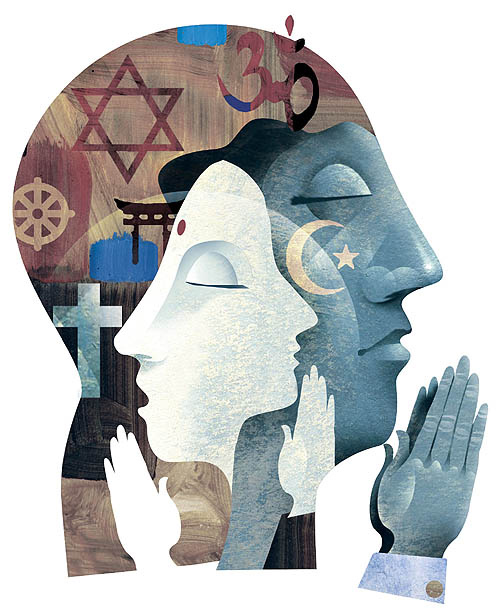I have my share of experiences dealing with creatures whose only objectives in life is to feel good and feel good only. You know, the ones who refuse to have a grip on reality, the victims of ‘positivity’. Now, I am going to waste my days by writing shits about them!
Victim number one
January 6, 2017. Pewdiepie, AKA the Swedish kazoo kid, uploaded a video that tackles the infestation of ‘forced positivity’ on Youtube. He admitted how he manufactured ‘happiness’ for image sake and he regretted such sinfulness. He also expressed frustration with how his fellow Youtubers exploit ‘happiness’ as a part of their brands.
He claimed ‘forced positivity’ made him feel worse as it did not allow him to comprehend his negative emotions; he stated the only way to solve a problem is to deal with it, NOT to run away from it!
(Side note: ‘forced positivity’ is a redundant term as I believe ‘positivity’ itself is an entity born out of force. But, I will retain the redundancy for this segment as it is the exact term Pewds used.)
The reception was universally positive. For some time, he provided the community a thought-provoking topic of discussion. Judging from the positive comments in the comment section, it seems this video is a reason why Pewds turned into a much more respectable content creator.
Then, there is that one commenter.
Despite my insistence how ‘forced positivity’ sounds conspicuously dishonest, he/she was firm with his/her belief that it is beneficial to our psyche! Then, she/he gave me multiple links which he/she claimed supported his/her argument. I clicked them and they lead me to actual academic papers!
At that moment, I was ready to be proven wrong! I was ready to have my firm, strongly-ground belief to get debunked by peer-reviewed researches! It also didn’t help Pewds only cited one article which itself was just an interview piece! I read the papers carefully….
… And quickly realised how fucking dumb I was for letting him/her tricked me! From all the papers he/she showed to me, none of them mentioned ‘forced positivity’!
The research regarding how optimism can benefit patients’ health said nothing about ‘forced positivity’! It said nothing about hospitals forcing their patients to be ‘happy’! In fact, it is very obvious how they already had a jolly disposition prior their sickness!
The research regarding helping students with their emotional problems also did not mention ‘forced positivity’! In fact, its proposed solution was to help them confront their negative emotions and understand why they experienced them in the first place! That’s literally what I said! That’s literally what Pewds fucking said!
This commenter was either a delusional doormat or an arrogant shrimp brain who thought he/she could make me tremble in fear by simply sharing academic papers, too arrogant to realise some of us are willing to read them thoroughly!
Of course, realising his/her bullshit was exposed, he/she retaliated brutally… by simply accusing me of being in denial and that was it. He/she said words no more and deleted the entire thread!
I am confident to say I won the debate. Not only I had proven how my opponent’s evidences did not back him/her up, I also showed how they gave him/her the finger and backed my argument and Felix’s instead!
In my life, I never expected I would humiliate someone like that.
Victim number two
Now, moving on from an honest content creator to the dishonest ones.
I would not single Prince Ea out as the only internet personality who love to exude feelgoodism. But, he is undoubtedly one of the biggest sinners.
Besides making his fans feel good about themselves for simply listening to his sugary, meaningless words, he also loves being a hypocrite who preaches about not having fragile ego and then proceed to get butthurt when fellow content creators called him out and spewing harm by telling depressed people all they have to do to force happiness onto themselves! Yes, he is one of those arseholes!
And yes, I have interacted with a fan of his. But, the interaction was too short and insignificant; so, I am not going to focus on him/her. Instead, I am going to focus on an apologist of Instagram travelers.
I never paid attention closely to any of them until Cody Ko made a video in which he criticised them for deceiving the public regarding the true nature of travelling… and life in general. He was put off by the mawkishness and the deceitfully ‘beautiful’ imagery. While they are clearly not Prince Ea, they sure are in the same league as he is!
Then, there came a commenter I would name as Mr. Apologist from now on.
He condemned Cody for being a cynical hater who unfairly accused all travelers of deceit and who just wanted to squeeze the happiness out of everyone by dismissing the ‘soul-stirring’ messages. He accused Cody of hypocrisy because Cody himself is a regular traveller who uploads travelling content to his own Insta account. He thought demanding those content creators to reveal their sources of income is unreasonably invasive. Heck, he even thought Cody was mean-spirited for mocking others who were different from him!
Now, I will disjointedly dissect his statements.
I believe it is unethical of public figures to not disclose their finances. I actually used the word ‘transparency’… which admittedly sounds lame; unless your opponents are as pretentious as you, citing big words will never get you anywhere in a debate. But, thankfully, another commenter made a more sharp-witted argument.
He/she asserted how mentally-exploitable fans will be swayed to do anything to fund their trips, even if they have to sell their cars and houses, not knowing anything how their idols make a living for themselves! For some us, it is too plain obvious (I hate myself for not making that argument)!
But then, your beloved idols are always right; if they tell you travelling is the only way to enjoy life, you better fucking believe them! This problem is exacerbated by the syrupy messages, which a lot of us still fall for.
‘Chase your dream!’. ‘Live your life!’. I don’t know what wisdom people like Mr. Apologist saw in those inherently-meaningless words.
Everyone has a dream! But, like it or not, real life is a bitch and most of our dreams will never come true! Like it or not, doing routines is also living the life; routines can help us to reach destination success… or, at least, avert us from reaching destination failure!
It seems my mere mentioning of the word ‘routines’ triggered him badly. He started to claim Cody’s refusal to not talk about the downsides of routines was a sign of bias. I mean, seriously?
Considering how modern humans constantly complain about how life-sucking routines are, that would be idiotically redundant! In fact, the banality of routines is the reason why people like Insta celebs are famous in the first place; their lives are presented as anti-routines! Mr. Apologist might as well demand people to talk about how salty salt is! Oh, and he also accuses me of bias.
What kind of bias do I have? He never answered, despite my persistent questioning. He believed my so-called bias prevents me from seeing how horrible Cody Ko really was, how he was the person he condemned, how he was the real bad guy here!
Well, let me see…
While Cody is indeed a frequent traveller, he never uploads any deceptively beautiful photos and videos, he never insinuates travelling as the only way to appreciate life, he never preys on the emotional fragility of his fans, he is transparent about his source of income, he never spews meaningless ‘inspirational’ words and he certainly never scams his fans like Crea Tyler did! Oh, and about his bullying of others…
There is a difference between bullying and poking fun of others. It is evident by how some of his so-called ‘bullying victims’, including Jay Alvarez himself – one of those Insta travelers – , reacted positively to his videos! Every time Cody makes fun of someone, he always does it humorously and he always has good reasons to do so!
I am all for being one’s self as I have been personally benefited by it. But, at the same time, Cody’s so-called ‘victims’ produce cringeworthy content; they are either different just for the sake of it or they make sincerely harmful contents which any impressionable human beings should never watch!
People who belong to the first two categories cannot expect others to not laugh at them. The ones who belong to the third should be harshly condemned for their toxicity! So, not only Cody is not a bad guy, he is actually one of the good guys the world needs!
Mr. Apologist also knew Jay Alvarez responded positively to the mockery. But then, he proceeded to baselessly speculate that Cody would make a second video about his target and continue the non-existing drama. I said ‘baselessly speculate’ because the speculation was indeed baseless!
In the Tiny Meat Gang podcast, he mentioned Jay’s positive reaction… and that was it. He never made a second video about him; there was no drama between the two! But, Cody did make two more videos about Crea Tyler. Why? Because, unlike Jay, Tyler literally scams his own fans!
To make my conversations with Mr. Apologist even weirder, he also claimed to be a regular traveller as well. The fact that he was one is odd. Even travelling with the help of travel agencies still has many downsides, let alone one where we have to do everything by ourselves! It is either he lied about being one or he was just a fanatic member of the cult of ‘positivity’.
His devotion to ‘positivity’ not only encourages him to be delusional about the activity he supposedly had immersed himself in, but also to slander every single person who dares to snap him back to reality!
I initially wanted to suggest you to watch Cody Ko’s videos and see for yourself. But, if you already possess a mentality similar to Mr. Apologist’s, you would instantly side with him and condemn Cody and any other well-meaning commentators for being hateful individuals.
Casualties number mycountryreligionperfectifyoudontlikeitleavediehurrdurr
Unlike the previous casualties, these ones are a lot easier to identify. All you have to do is to point out the deep-rooted flaws of their respective – and beloved – groups. The sight of foam forming on their mouths is 100% guaranteed!
Defensiveness is the most common reaction. They always feel personally abused by any condemnations targeted specifically at the extremists! They will try to downplay the threat, accuse the ones who fear extremism of being alarmists and proceed to accuse the ‘others’ AKA marginalised groups as the dangerous ones! And their delusion does not stop there!
They also love attacking the mainstream media for spreading lacking journalistic integrity. I do agree media outlets constantly spread fake or sensationalised stories and hire personalities who constantly blur the lines between journalism and commentaries. But, we know damn well those are not the reasons why they hate the media!
They hate how the media constantly report stories of real widespread violence committed by their fellow ideologues, instead of focusing more time on exposing numerically-less significant violence committed by the ‘others’!* They hate how the media refuses to affirm their delusional worldviews!
They are so fucking delusional, they think the only fundamental goal of media outlets is to be their personal propagandists, to make them feel good about themselves and world they live in!
(*Side note: All acts of violence are bad, no matter how widespread or isolated they are! But, if one wishes to determine which pose the biggest threat and which are signs of deep-rooted societal problems, one must choose the ones that occur on an almost regular basis!)
From my personal experiences, those piles of pig dung often include nationalists, believers and even religious nationalists. Because of their abundance, I constantly encounter them both online and offline. But, I won’t discuss individual confrontations in details; I am already on page four and I am itching to finish this essay soon!
Oh, and some of you, my non-existent readers, may wonder why I consider those people as ‘positivity enthusiasts’ instead of fanatics. On the surface, claiming it is all about feelgoodism does sound too far-fetched. But, dig deeper and it would make more sense.
When one (accurately) labels someone as a fanatic, it means he/she has an absolutely unquestioning love for certain things by believing in their non-existing perfection and by always feeling good about them!
If one dares to point out the glaring imperfection, he/she would be infuriated by one’s refusal to let him/her feel good about the things he/she loves! He/she believes depriving him/her of ‘good feelings‘ is one of the greatest sins ever committed by mankind! Literally worse than any murders!
I don’t believe positivity is the root of fanaticism, which surely is a tangle of abstract intricacies. But, I believe it is a symptom everyone must be alert of.
How I deal with feelgoodism
Admittedly, I was also a victim of it and I always thrived to feel good about everything. Then, surprisingly, I grew up! I still don’t know how I escaped the fool’s paradise. But now, I have set up some preventive measures.
If certain messages bring me a mystifying surge of high spirits, I should never let my guard down; they may contain beliefs which equate happiness with delusions. But, at the same time, I should refrain myself from cynicism (easier said than done); the wholesomeness may also be genuine.
If the messages not only make me excessively feel good about myself, but also compel me to look down on others whom I impulsively perceive as ‘unenlightened’, red fucking alert!
I should avoid those messages at all cost and I should be wary of individuals who vomit and cuddle them! I sound like I am overreacting. But, I am sure you agree sitting high and mighty among the clouds is a vice anyone should never fall for.
Oh, and instead of ‘positivity’, I prefer to use these alternatives: hope and contentment. The former believes the storms will surely pass. The latter believes we can enjoy life despite the storms. Both believe happiness does not mean disregarding the dark clouds lingering above us.
While far from perfect, the methods I use have brought me a greater sense of self-awareness. They compel me to acknowledge how much of a delusional, self-righteous dickhead my younger self was.
Even though I still tumble to the realm of chimeras and piety from time to time, I become better at fleeing it thanks to those methods.
.
.
.
.
.
.
.
.
Donate to this deadbeat, preachy blogger on Patreon.







